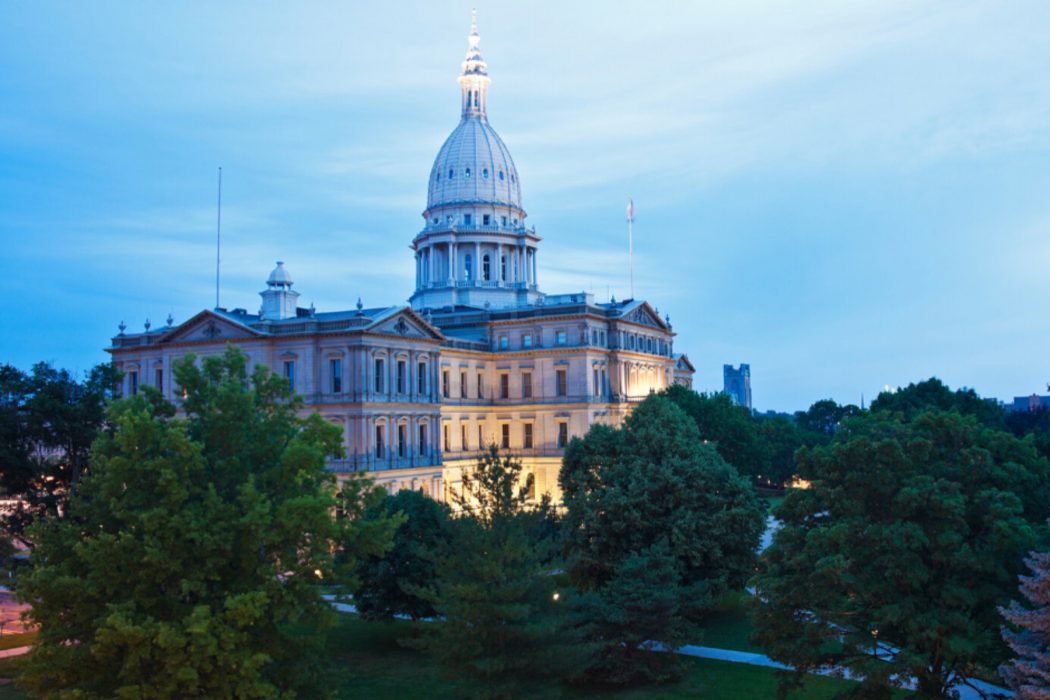
Article courtesy MIRS News, for SBAM’s Lansing Watchdog e-newsletter
The Senate committee that moved the most Senate bills that eventually were signed into law during 2022 was the Senate Health Policy and Human Services Committee.
Out of the 76 Senate bills that were signed into Michigan law last year, the Senate Health Policy and Human Services Committee supervised the initial progress and adoption of 15 of them, or roughly 20%.
Several committees did not adopt any Senate bills that turned into PAs last year, including the Senate Oversight Committee that met 19 times, the Senate Energy and Technology Committee that met seven times, the Senate Education and Career Readiness Committee that met 11 times and the Senate Government Operations and Families, Seniors and Veterans Committees that reportedly did not meet at all in 2022.
Throughout 2022, the Senate Health Policy and Human Services Committee was chaired by former Republican Sen. Curtis VanderWall (R-Ludington), who returned to the Legislature this year as a state representative in the now-minority party. The committee’s Democratic leadership post – the minority vice chair – was held by Sen. Winnie Brinks (D-Grand Rapids), who’s kicking off her new role as Senate majority leader for the new term.
While the Senate ultimately held 62 active, attendance-taking session days throughout 2022, the Senate Health Policy and Human Services Committee met on 21 days.
Some of the committee’s successful legislation included VanderWall’s SB 1012 – now Public Act 180 of 2022 – establishing the Student Mental Health Apprenticeship and Retention and Training (SMART) program.
The aforementioned project, overseen by the Michigan Department of Education and to be subjected to annual legislative appropriations, would provide a lump-sum of $15,000 per individual grants for a person interning in a public school for a graduate-level mental health professional program.
In return, the aspiring mental health care provider would be required to work in the respective public school for three years with encouragement to stay in the community.
The committee further oversaw SB 993, SB 994 and SB 995 – presently Public Acts 83, 84 and 85 of 2022 – that placed the $800 million Michigan acquired through a historic opioid settlement, as well as other future opioid-related settlements, into a newly created Opioid Healing and Recovery Fund.
The legislation also set up a special advisory commission to review community proposals to spend the money on prevention services, education, treatment, aid for impacted individuals and family members and other efforts combating the opioid epidemic.
Two other panels got the ball rolling on 13 other bills a piece that later became PAs in 2022. They were the Senate Economic and Small Business Development Committee and the Senate Appropriations Committee.
The Senate Appropriations Committee, the official budget-making arm of the Senate with multiple subcommittees, had obvious successes like SB 565 – now Public Act 53 of 2022 – dedicating around $4.7 billion into the state’s water infrastructure and other quality-of-life items.
The supplemental investment directed $506 million in federal Infrastructure Investment and Jobs Act (IIJA) funding – as well as $1.3 billion in federal COVID-19 relief resources – into state-run lead service line replacement grants and stormwater, drinking water and wastewater grants.
After holding 13 public and official meetings, the committee moreover pushed out the likes of SB 842 – Public Act 212 of 2022 – creating a $250 million state-funded scholarship program that more than 75% of Michigan high schoolers graduating in spring of this year are projected to be eligible for.
The Senate Economic and Small Business Development Committee held 12 public meetings, and delivered an accessible and affordable housing package consisting of SB 362, SB 364, SB 422 and SB 432 – currently Public Acts 236, 238, 237 and 239 of 2022.
The legislation aimed to remove financial and land-use roadblocks when it came to the development of attainable housing, such as by authorizing payments in lieu of taxes (PILOTs) for workforce housing efforts operating outside of federal and state subsidies or similar programs.
It additionally expanded Michigan’s Neighborhood Enterprise Zone (NEZ) Act to offer site rehabilitation incentives to a larger number of communities.
Overall, three Senate bills remain on the Governor’s desk that Whitmer could still technically sign or veto until Jan. 11. If the Governor does nothing with them as of Jan. 11, they officially die as pocket vetoes. They are:
– SB 39 and SB 43 by Sen. Roger Victory (R-Hudsonville)reacting to the Michigan Supreme Court 1996 conclusion in Brown v. Manistee County Road Commission, holding that the 120-day notice provision of someone seeking recovery for injuries caused by a defect in county road commission apply to lawsuits against county road commissions. The legislation would clarify the liability of counties for road maintenance-related injuries.
– SB 642 by former Senate Minority Leader Jim Ananich (D-Flint) sets in place a Qualifications-Based Selection (QBS) process ensuring that public agencies secure professional design services – such as from architects, engineers, and land surveyors – based on demonstrated competence and qualifications.